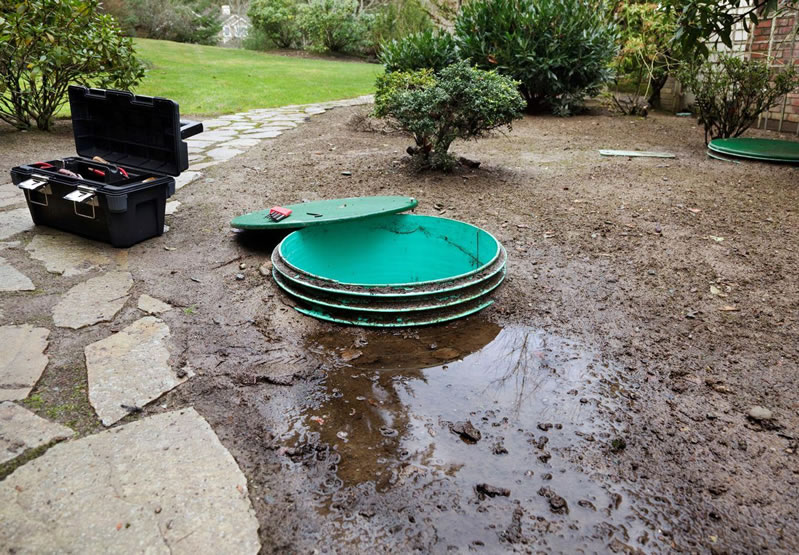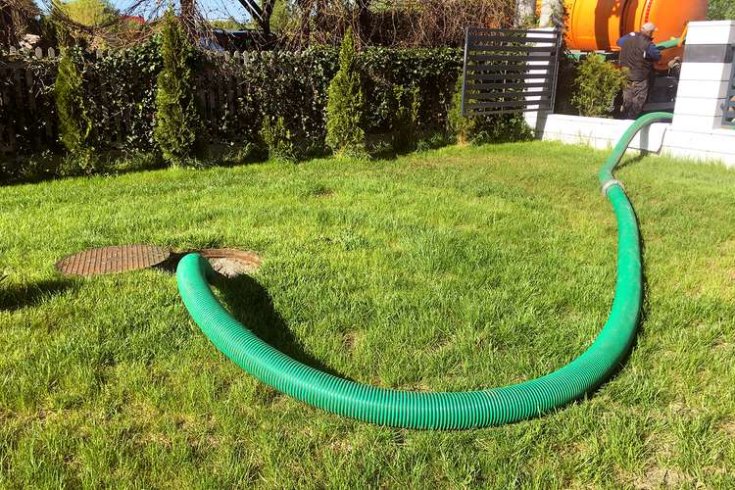
19
While the septic system itself is often the focus of maintenance, one crucial yet frequently overlooked component is the septic tank lid. A damaged or compromised septic tank lid can lead to a range of serious problems that can impact your property, health, and finances.
A damaged septic tank lid poses a significant safety risk to anyone who comes into contact with it. Cracked or broken lids can create a hazardous environment, particularly if the lid collapses underweight or if someone accidentally steps on it. This can lead to falls, injuries, and even more severe accidents. Children and pets are especially vulnerable to these dangers. By ensuring that your septic tank lid is intact and secure, you can prevent potential safety hazards on your property.
One of the primary functions of a septic tank is to contain and treat wastewater, preventing harmful substances from entering the environment. A damaged lid can compromise the integrity of the system, allowing contaminants to escape and potentially contaminate the soil, groundwater, and nearby water sources. This contamination poses health risks not only to your household but also to the community and ecosystem. Bacteria, pathogens, and chemicals from the wastewater can spread, leading to waterborne illnesses and other health issues.
A damaged septic tank lid provides an entry point for pests and critters seeking shelter or a source of food. Rodents, insects, and other unwanted guests can easily make their way into your septic tank, causing further damage and potentially creating breeding grounds for disease vectors. Pest infestations can quickly escalate, spreading to other areas of your property and even your home.
The septic tank lid serves as a protective cover for the tank itself, safeguarding it from external forces and environmental elements. When the lid is damaged, it exposes the tank to the elements, which can accelerate deterioration and corrosion. Over time, this can weaken the structural integrity of the tank, leading to leaks, cracks, and even collapse. Septic tank repair is not only essential for preventing further damage but also for ensuring the longevity of the entire septic system.
In many areas, there are strict regulations and codes governing septic systems to protect public health and the environment. A damaged septic tank lid can lead to non-compliance with these regulations, potentially resulting in fines, penalties, or legal actions. Regular maintenance and prompt septic tank repair demonstrate your commitment to responsible stewardship of your property and the surrounding environment.
To mitigate the risks associated with a damaged septic tank lid, it is imperative to enlist the services of a professional septic company. These experts have the knowledge, experience, and equipment to assess the condition of your septic tank lid, perform necessary repairs, and provide ongoing maintenance.
Regular septic tank pumping, repair, and septic tank installation services offered by Charlotte Septic Pros ensure that your septic system functions optimally and remains in compliance with regulations. By scheduling routine inspections and addressing any issues promptly, you can avoid the potential risks and costly consequences of a damaged septic tank lid.
Prioritizing regular maintenance, professional services, and timely repairs provided by septic companies is essential for safeguarding your property, health, and the environment. Remember, a small investment in preventative measures today can save you from significant troubles in the future.

28
Why Is Sewage Backing Up into My Tub? When wastewater starts rising into your bathtub, it’s more than just unpleasant—it’s…
Read more
22
Can Bacteria Additives Eliminate the Need for Pumping? If you own a home with a septic system, you’ve probably seen…
Read more
12
A single slow drain in your home can feel like a minor inconvenience. Maybe the sink takes a little longer…
Read more
05
Are Slow Drains a Septic Issue or Just a Clog? Slow drains are one of those household problems that start…
Read more
02
What Septic Service Techs See That Homeowners Miss Most homeowners only think about their septic system when something goes wrong.…
Read more
21
Simple Habits That Protect Your Septic System A well-functioning septic system does its job quietly, but the moment something goes…
Read more
14
Pump Now or Pay Later: The Real Cost of Skipping Maintenance A properly functioning septic system is easy to forget…
Read more
11
Why Your Septic System Always Acts Up at the Worst Time Homeowners often feel that septic problems strike at the…
Read more
04
Early Warning Signs Your Septic Tank Needs Pumping For homeowners who rely on a septic system, routine maintenance is not…
Read more
29
Why Does My Septic System Smell Fine One Day and Terrible the Next? If you own a home with a…
Read more